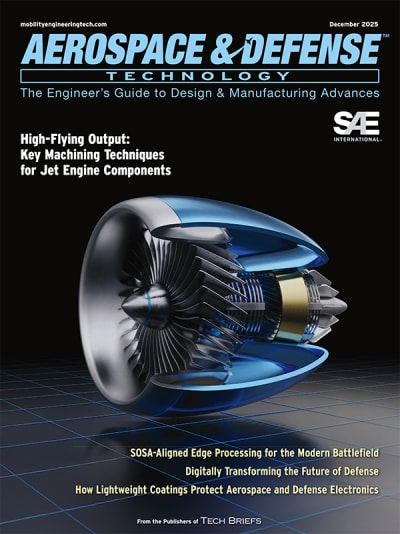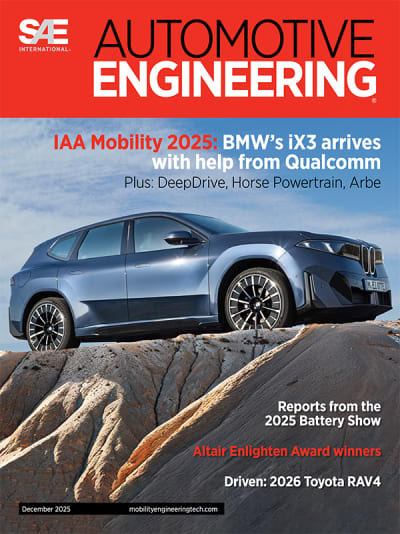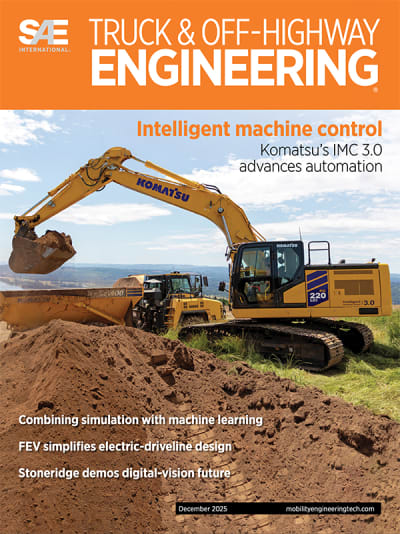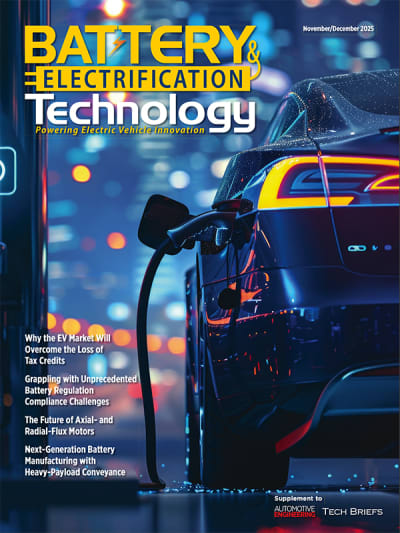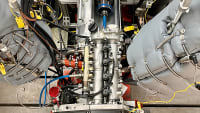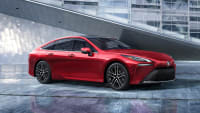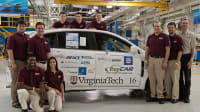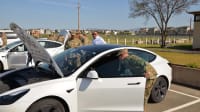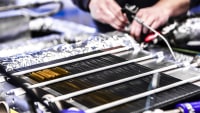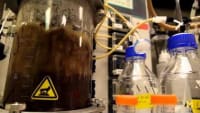Alternative Fuels Overshadowed in EV Era

“I’m a very big believer in alternative fuels,” SAE Fellow Andrea Strzelec, Ph.D., told former SAE Update editor Patrick Ponticel. “I see that in the push towards all things electric, this is a huge area of oversight from a research funding stand-point. Regardless of what the future fleet looks like — and I think that the projections on that are constantly changing, as just [recently] the UK government backed off their ICE bans — there is an existing legacy fleet that will continue to run on liquid fuels for decades to come.”
Strzelec, who recently was hired at USCAR (United States Council for Automotive Research) as senior research scientist, has been an SAE member since 2003 and currently serves as Chair of the Energy & Propulsion Activity (formerly Powertrain, Fuels & Lubricants Activity) for SAE. Following is a portion of the interview featured in the November issue of SAE’s member publication Update ( www.sae.org/update ).
In what ways are you involved in hydrogen and alt fuels?
I have been working on alternative fuels and their effects on emissions for nearly 20 years. Starting with my PhD work at UW-Madison and Oak Ridge National Laboratory, which was focused on the effects of biodiesel on emissions, with a focus on particulate matter and its reactivity in diesel particulate filter (DPF) regeneration. Additionally, I have studied the impact on emissions of fuels such as biodiesel, ethanol (in GDI particulate) and their blends. I’m just about to start a project that looks at the emissions from renewable diesel (RD) and RD/biodiesel blends.
What should people know about the potential of alt fuels?
I’m very positive on fuels that don’t add to the carbon inventory — things like bio-fuels, renewable fuels, e-fuels and other low-carbon fuels. These are all dense energy carriers similar to their petroleum-based counterparts that are often directly compatible (fungible) with the existing fuel distribution infrastructure (i.e., renewable diesel). It is my opinion that these kinds of fuels, paired with hybrid vehicles (full, not plug-in) would allow the fastest reduction of CO2 emissions from the vehicle fleet — both new and existing.
One major thing that I think often gets lost in the discussion of the ‘electric vehicle future’ is the existing fleet — alternative fuels such as the ones listed above help them, too. They can be both forwards and backwards compatible.
Now, people might say: Why would you make e-fuels rather than use the (renewable) electricity directly? Isn’t that more efficient? Perhaps. However, the energy density (and resulting mileage per tank / equivalent) is often greater with the e-fuels, they can be handled and distributed like conventional fuels, and this compatibility with the existing infrastructure is a huge benefit. I can point to what Porsche is doing with e-fuels as a potential model for other companies to follow.
Are alt fuels on the right course at the right pace by the various parties involved?
Trying to find a single ‘silver bullet’ solution is a great example of what I think we are doing wrong. I admire and whole-heartedly agree with the idea of reducing the amount of new CO2 into the atmosphere — I just think that the singular focus on EVs is the wrong way to accomplish it. I also think that approach is not accessible to everyone and creates some significant equity discrepancies.
I have been a strong proponent of the ‘eclectic’ approach (credit to SAE Fellow Dr. Kelly Senecal), and my analysis shows that the fastest way to achieve this goal is mass adoption of full hybrids and renewable/bio/e-fuels. This path is inclusive to the existing legacy fleet as well as new vehicles, and greatly reduces the concerns surrounding battery materials, range anxiety and [accessibility].
For this reason, and because I’m generally against putting all the eggs in just one basket, when the basket isn’t fully developed yet... I’m really disappointed that funding agencies like DOE have stopped investment in the fuels area. There has been some absolutely amazing work out of the U.S. DOE BETO (bioenergy technologies office) that is very promising for true gasoline and diesel replacement fuels — but political winds have shifted that work to only focus on SAFs (sustainable aviation fuels) — which is a great loss to the automotive sector.
Top Stories
INSIDERRF & Microwave Electronics
![]() FAA to Replace Aging Network of Ground-Based Radars
FAA to Replace Aging Network of Ground-Based Radars
PodcastsDefense
![]() A New Additive Manufacturing Accelerator for the U.S. Navy in Guam
A New Additive Manufacturing Accelerator for the U.S. Navy in Guam
NewsSoftware
![]() Rewriting the Engineer’s Playbook: What OEMs Must Do to Spin the AI Flywheel
Rewriting the Engineer’s Playbook: What OEMs Must Do to Spin the AI Flywheel
Road ReadyPower
![]() 2026 Toyota RAV4 Review: All Hybrid, All the Time
2026 Toyota RAV4 Review: All Hybrid, All the Time
INSIDERDefense
![]() F-22 Pilot Controls Drone With Tablet
F-22 Pilot Controls Drone With Tablet
INSIDERRF & Microwave Electronics
![]() L3Harris Starts Low Rate Production Of New F-16 Viper Shield
L3Harris Starts Low Rate Production Of New F-16 Viper Shield
Webcasts
Energy
![]() Hydrogen Engines Are Heating Up for Heavy Duty
Hydrogen Engines Are Heating Up for Heavy Duty
Energy
![]() SAE Automotive Podcast: Solid-State Batteries
SAE Automotive Podcast: Solid-State Batteries
Power
![]() SAE Automotive Engineering Podcast: Additive Manufacturing
SAE Automotive Engineering Podcast: Additive Manufacturing
Aerospace
![]() A New Approach to Manufacturing Machine Connectivity for the Air Force
A New Approach to Manufacturing Machine Connectivity for the Air Force
Software
![]() Optimizing Production Processes with the Virtual Twin
Optimizing Production Processes with the Virtual Twin

